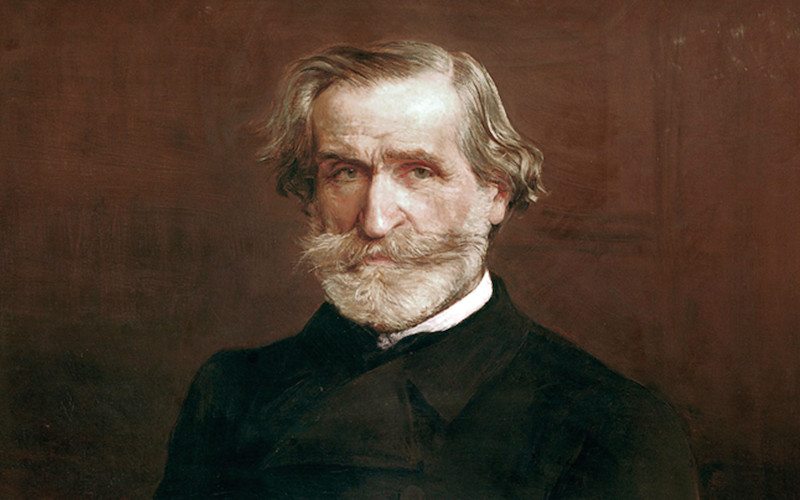Verdi
Episode #7 of the course “Famous classical music composers”
Italian Romantic composer Giuseppe Verdi changed 19th-century music with his brilliant operas. Unifying sounds from around the Italian peninsula, Verdi wrote pieces that struck emotional chords with audiences. His pieces were of a grand style focused on the drama in the genre of opera rather than a singer’s individual talents. His compositions worked well in theatrical productions and became very popular. He never shied away from his commercialism and instead traveled Europe, which expanded the range and sounds of his later works. A world-famous celebrity, he also composed one of the most inspirational religious Requiems of all time.
Moved at the death of an Italian poet and novelist, Verdi composed the Messa da Requiem. After a failed attempt to collaborate with other Italian composers on a previous requiem, Verdi took the Libera Me he had originally intended for the first piece and included it in a new composition. He uses the same kind of contrasts and dramatic melodies seen in his operas to underscore the emotional resonance of Catholic mass rituals. With a variety of instruments and vocal arrangements, the Messa da Requiem is rarely performed in church ceremonies but rather in performance halls and recitals.
Among his most famous operas, of which there are many, Verdi is known for his composition Nabucco. After a previous failure of an opera, he vowed never to compose again, but he emerged into the popular scene one year later with a semi-autobiographical opera that included large-scale religious themes and biblical characters. Later adapted into a ballet, Nabucco was seen as an opera that was not musically challenging, but audiences couldn’t get enough of it. Verdi’s scores in Nabucco inspired a sense of nationalism and camaraderie, and even created incidents of people spontaneously singing its songs in the street.
Share with friends

